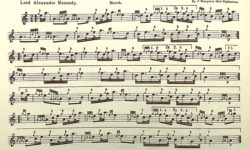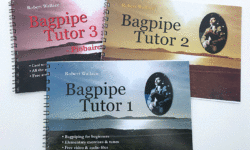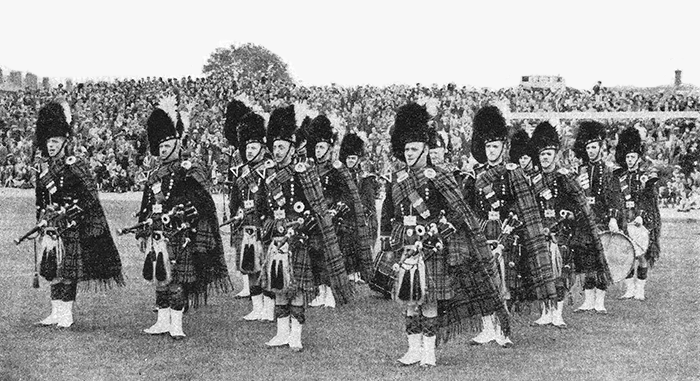
In any organisation it is always good practice to study its history before attempting to make changes or further develop its structure, policies or procedures. History has a habit of repeating itself on a cyclical basis, so it is always worth considering the background to previous decisions to avoid repeating previous mistakes.
It is also always worth considering whether seemingly new ideas have actually been tried before and failed. The pipe band world, including the RSPBA, is no different in these respects and more often than not changes may be contemplated or introduced without any reference to past history.
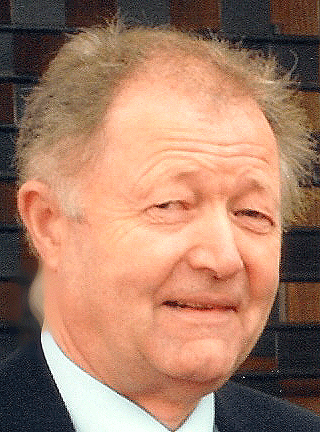
By Alistair Aitken OBE
During the past year I have posted on Piping Press various historical articles written about the early influence of pipe band drumming pioneers such as Paddy Donovan, Jimmy Catherwood, Alex McCormick, Gordon Jelly and AD Hamilton.
These articles all had a primary focus on attempts to develop pipe band drumming between the 1920s and 1950s from its early traditional focus on keeping time and technical aspects, to a much wider progression into musical interpretation and musical effect. Some of these individuals, in particular AD Hamilton, were also integral to starting the debate about the concept of pipe band ensemble.
[wds id=”2″]
I have come across more historical papers of a similar nature which reflect a debate, in the form of contributions in The Pipe Band magazine during the mid-1950s, by Pipe Majors Dugald McLachlan, and William Sloan BEM, and Drum Majors Alex McCormick and Alex Hamilton.
At the time Dugald McLachlan was a former SPBA Piping adjudicator (who I understand was the first Pipe Major of the Camelon Pipe Band from the Falkirk area of Scotland). William Sloan, Pipe Major of the Maclean Pipe Band from Glasgow, was one of the founders of the SPBA, and Alex McCormick was Leading Drummer of Glasgow Police Pipe Band before emigrating to Australia, where he became a major influence in that country. Alex Hamilton was a significant influence in the development of pipe band music as we know it today.
I have reproduced these articles in the attached document, in the same sequence in which they appeared in the magazine.
They also include some comments from Drum Major James Gray (who I assume to be the late Jimmy Gray, former Leading Drummer of Muirhead & Sons Pipe Band and also an SPBA/RSPBA Drumming and Ensemble adjudicator colleague for many years), and Drum Major Peter Roberts, who was at that time Honorary Secretary of the Lothian & Borders Branch of the SPBA.
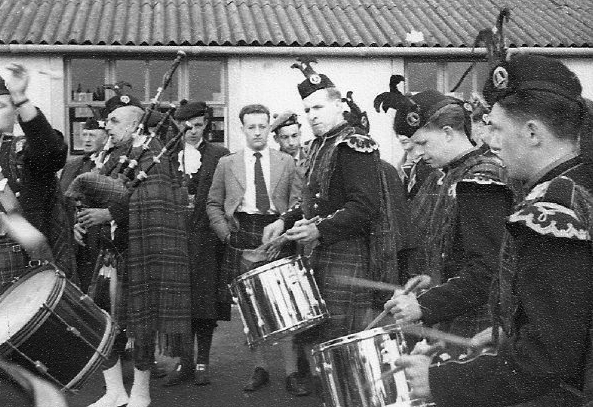
The articles produce some interesting arguments and illustrate clearly certain subjects which historically have tended to continue to surface from time to time over the years, and still do. They include:
- Concerns at that time about adjudicators of pipe band contests being in tents and unable to see the performing bands (including instrument malfunctions, dummy players etc.); and the removal of M&D from pipe band competitions resulting in lower standards of dress and deportment.
- Widely differing views between the pipers and drummers about the extent to which pipe band drumming had actually developed in a musical context, some thinking that there was still too much focus on technical accuracy, keeping time and degree of difficulty.
- Wide ranging views on the ideal tempo for tunes played by pipe bands.
- A strong view that the continuation of a Drumming prize was a major barrier to ‘collective pipe band’ musical development.
- Concerns that Drumming adjudicators tended to assess their discipline from a purely technical point of view with no consideration of the musical effect.
- A strong view from some of the need for an adjudicator to assess the combined pipe band performance (i.e. an Ensemble adjudicator).
- The need for major changes to be fully considered in detail and universally at SPBA(RSPBA) Branch level before they are presented at an Association AGM, where the scrutiny was considered to be less rigorous as very few pipe bands were represented.
To be continued










